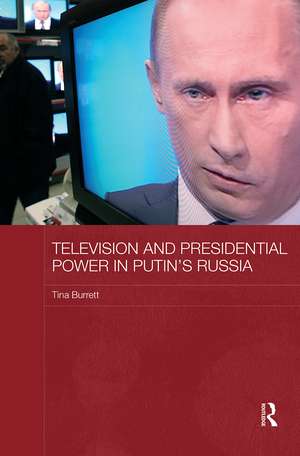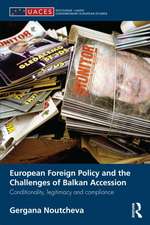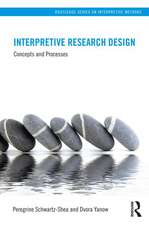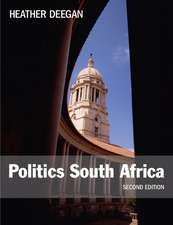Television and Presidential Power in Putin's Russia: BASEES/Routledge Series on Russian and East European Studies
Autor Tina Burretten Limba Engleză Paperback – 16 dec 2013
The book also highlights the ways in which oligarchic media owners in Russia used television for their own political purposes, and that media manipulation was not the exclusive preserve of the Kremlin, but a common pattern of behaviour in elite struggles in the post-Soviet era. Basing its analysis predominately on interviews with key players in the Moscow media and political elites, and on secondary sources drawn from the Russian and Western media, the book examines broad themes that have been the subject of constant media interest, and have relevance beyond the confines of Russian politics.
| Toate formatele și edițiile | Preț | Express |
|---|---|---|
| Paperback (1) | 396.33 lei 6-8 săpt. | |
| Taylor & Francis – 16 dec 2013 | 396.33 lei 6-8 săpt. | |
| Hardback (1) | 1059.48 lei 6-8 săpt. | |
| Taylor & Francis – 9 dec 2010 | 1059.48 lei 6-8 săpt. |
Din seria BASEES/Routledge Series on Russian and East European Studies
-
 Preț: 228.19 lei
Preț: 228.19 lei -
 Preț: 311.22 lei
Preț: 311.22 lei - 8%
 Preț: 389.69 lei
Preț: 389.69 lei -
 Preț: 737.43 lei
Preț: 737.43 lei -
 Preț: 309.89 lei
Preț: 309.89 lei -
 Preț: 310.22 lei
Preț: 310.22 lei -
 Preț: 297.39 lei
Preț: 297.39 lei -
 Preț: 326.49 lei
Preț: 326.49 lei -
 Preț: 349.09 lei
Preț: 349.09 lei - 9%
 Preț: 1038.51 lei
Preț: 1038.51 lei - 24%
 Preț: 298.10 lei
Preț: 298.10 lei -
 Preț: 398.18 lei
Preț: 398.18 lei - 18%
 Preț: 1271.75 lei
Preț: 1271.75 lei - 18%
 Preț: 1057.05 lei
Preț: 1057.05 lei - 18%
 Preț: 1059.84 lei
Preț: 1059.84 lei - 18%
 Preț: 1062.26 lei
Preț: 1062.26 lei - 18%
 Preț: 1055.51 lei
Preț: 1055.51 lei - 18%
 Preț: 1057.75 lei
Preț: 1057.75 lei - 18%
 Preț: 1059.84 lei
Preț: 1059.84 lei - 25%
 Preț: 823.63 lei
Preț: 823.63 lei -
 Preț: 487.75 lei
Preț: 487.75 lei - 18%
 Preț: 1005.39 lei
Preț: 1005.39 lei - 18%
 Preț: 1000.76 lei
Preț: 1000.76 lei - 8%
 Preț: 382.79 lei
Preț: 382.79 lei - 18%
 Preț: 1059.84 lei
Preț: 1059.84 lei - 18%
 Preț: 1059.84 lei
Preț: 1059.84 lei - 18%
 Preț: 1009.21 lei
Preț: 1009.21 lei - 18%
 Preț: 1059.84 lei
Preț: 1059.84 lei - 18%
 Preț: 1167.36 lei
Preț: 1167.36 lei - 18%
 Preț: 1060.87 lei
Preț: 1060.87 lei - 30%
 Preț: 771.71 lei
Preț: 771.71 lei - 18%
 Preț: 1059.84 lei
Preț: 1059.84 lei - 18%
 Preț: 1004.20 lei
Preț: 1004.20 lei - 18%
 Preț: 1053.92 lei
Preț: 1053.92 lei - 25%
 Preț: 515.72 lei
Preț: 515.72 lei - 18%
 Preț: 709.01 lei
Preț: 709.01 lei - 25%
 Preț: 823.08 lei
Preț: 823.08 lei - 18%
 Preț: 1103.19 lei
Preț: 1103.19 lei - 18%
 Preț: 1057.75 lei
Preț: 1057.75 lei - 18%
 Preț: 1065.75 lei
Preț: 1065.75 lei - 18%
 Preț: 1055.51 lei
Preț: 1055.51 lei - 26%
 Preț: 850.73 lei
Preț: 850.73 lei - 25%
 Preț: 825.06 lei
Preț: 825.06 lei - 18%
 Preț: 734.50 lei
Preț: 734.50 lei - 26%
 Preț: 821.94 lei
Preț: 821.94 lei - 18%
 Preț: 1062.98 lei
Preț: 1062.98 lei - 18%
 Preț: 1002.63 lei
Preț: 1002.63 lei
Preț: 396.33 lei
Nou
Puncte Express: 594
Preț estimativ în valută:
75.84€ • 79.18$ • 62.77£
75.84€ • 79.18$ • 62.77£
Carte tipărită la comandă
Livrare economică 04-18 aprilie
Preluare comenzi: 021 569.72.76
Specificații
ISBN-13: 9780415838146
ISBN-10: 0415838142
Pagini: 320
Ilustrații: 1 black & white illustrations, 6 black & white tables, 2 black & white halftones, 1 black & white line drawings
Dimensiuni: 156 x 234 x 25 mm
Greutate: 0.45 kg
Ediția:1
Editura: Taylor & Francis
Colecția Routledge
Seria BASEES/Routledge Series on Russian and East European Studies
Locul publicării:Oxford, United Kingdom
ISBN-10: 0415838142
Pagini: 320
Ilustrații: 1 black & white illustrations, 6 black & white tables, 2 black & white halftones, 1 black & white line drawings
Dimensiuni: 156 x 234 x 25 mm
Greutate: 0.45 kg
Ediția:1
Editura: Taylor & Francis
Colecția Routledge
Seria BASEES/Routledge Series on Russian and East European Studies
Locul publicării:Oxford, United Kingdom
Public țintă
PostgraduateCuprins
1. Covering the President: An Introduction 2. Television and the 2000 Presidential Election 3. Elite Conflict and the End of Independent Television 4. Controlling the News Agenda 5. National Television and the 2003 State Duma Election: Coverage of the Candidates, Corruption and Khodorkovsky 6. Securing the System and a Second Term: Television Coverage 2004 Russian Presidential Election 7. Television in Putin’s Second Term
Recenzii
"Relying on interviews and content analysis, Burrett painstakingly details how Russian television changed over time... the book is a detailed and sophisticated analysis of political communication under Putin in Russia. Recommended [for] Upper-division undergraduates and above." - L. J. Roselle, Elon University
"This is a very detailed book, exploring chronologically the role of media and television from 2000 to 2008 and demonstrating how Putin managed to right the distressed ship of the Russian Duma and presidential elections... Burrett insightfully address[es] the fundamental ambiguities at the heart of Putin’s effort to consolidate Russian state power." - Hessam Vaez-Zadeh, University of Tehran; SEER, 90, 1, January 2012
'This book will surely establish itself as a major point of reference for scholars and students of Russian media and society, and of the politics of postcommunist transition.' - Stephen Hutchings, University of Manchester; Slavic Review, vol. 72, no. 3 (Fall 2013).
"This is a very detailed book, exploring chronologically the role of media and television from 2000 to 2008 and demonstrating how Putin managed to right the distressed ship of the Russian Duma and presidential elections... Burrett insightfully address[es] the fundamental ambiguities at the heart of Putin’s effort to consolidate Russian state power." - Hessam Vaez-Zadeh, University of Tehran; SEER, 90, 1, January 2012
'This book will surely establish itself as a major point of reference for scholars and students of Russian media and society, and of the politics of postcommunist transition.' - Stephen Hutchings, University of Manchester; Slavic Review, vol. 72, no. 3 (Fall 2013).
Descriere
As a new president takes power in Russia, this book provides an analysis of the changing relationship between control of Russian television media and presidential power during the tenure of President Vladimir Putin. It argues that the conflicts within Russia’s political and economic elites, and President Putin’s attempts to rebuild the Russian state after its fragmentation during the Yeltsin administration, are the most significant causes of changes in Russian media.
















